English Writing Subject Leaders: Mrs T Handley and Mrs T Grimwood
At Sedley’s, we believe that the skills and knowledge which are taught in English are a firm basis for all learning. Speaking and Listening link very closely to the development of reading and writing. We want our children to confidently be able to use their English skills in all subjects across our broad and balanced curriculum.
Intent
Our children need to be able to write in a range of genres, focusing on being able to adapt their language and style of writing. Children will also need to be able to write for a range of contexts, purposes and audiences, using the grammar knowledge and spelling they are taught. Children should be exposed to a vocabulary-rich environment which allows them to make appropriate word choices which leads to their writing being interesting to read.
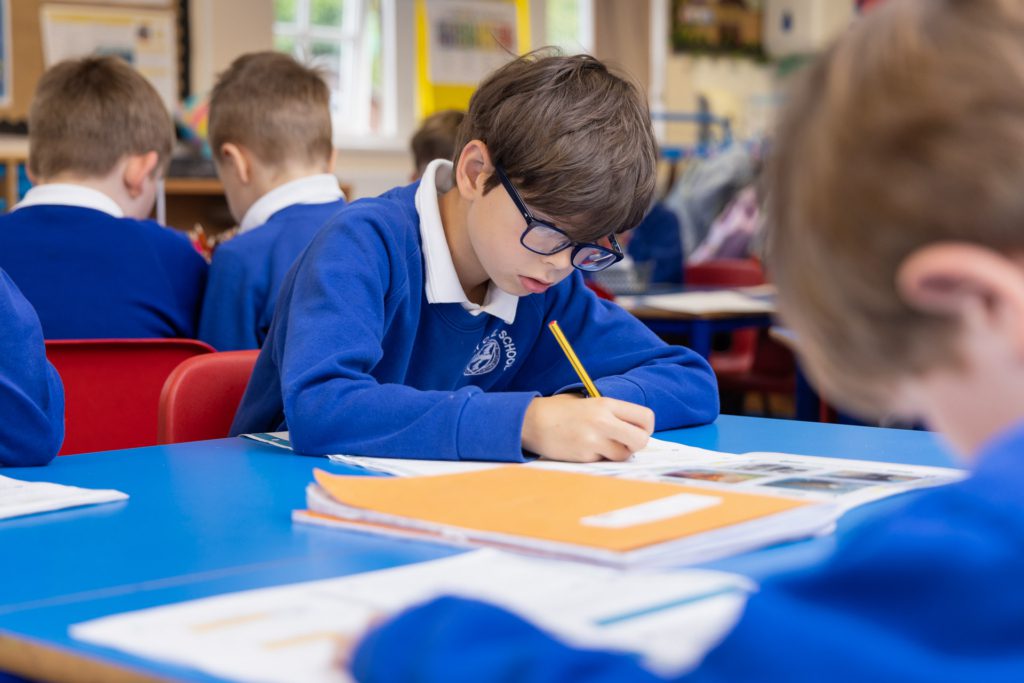
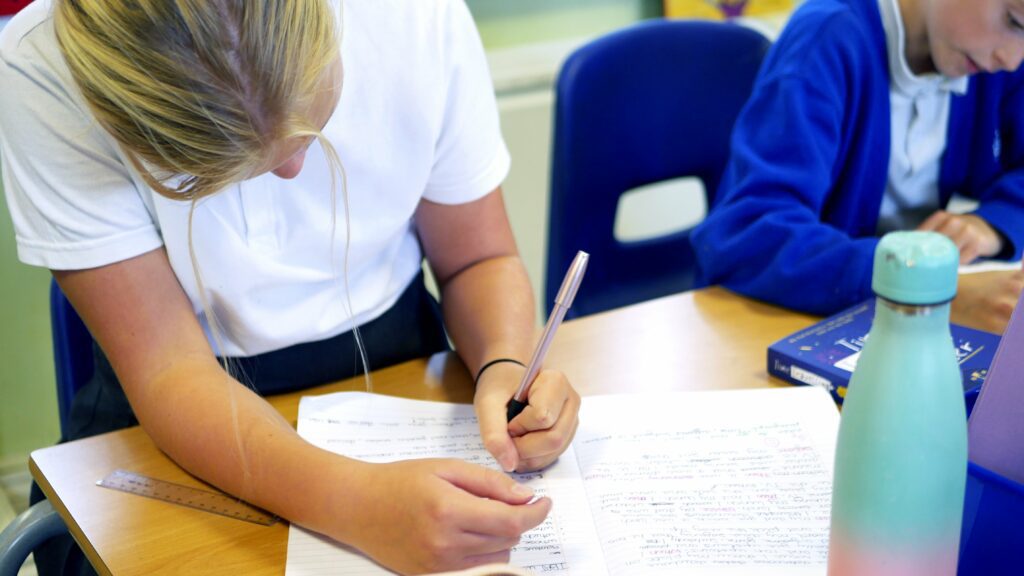
Implementation
Writing will always have a purpose with a variety of genres and text types being taught throughout the academic year. These are carefully planned from Reception to Year 6. The teaching of writing is purposeful, and robust and shows clear progression. Teachers focus on embedding the skills taught throughout the year in cross-curricular writing opportunities and ensure that children are achieving the objectives with appropriate support and challenge in place.
Impact
The impact of our writing can be seen in the children’s books and the outcomes for all groups of pupils within the school.
Pupils’ progress is measured through ongoing assessment and through three key assessment points during the year, as well as ongoing moderation both internally and externally. Learning is planned to address misconceptions, and gaps in learning are identified by staff to ensure that the curriculum effectively meets the needs of all pupils.
By the end of our children’s time here at Sedley’s, we will have provided them with opportunities and taught them to:
- Have a love of reading and writing, across a variety of genres
- Use rich and varied vocabulary in their written and spoken language
- Have an English toolkit that equips them to be effective “life-long writers” in all subjects as their journey continues through education.
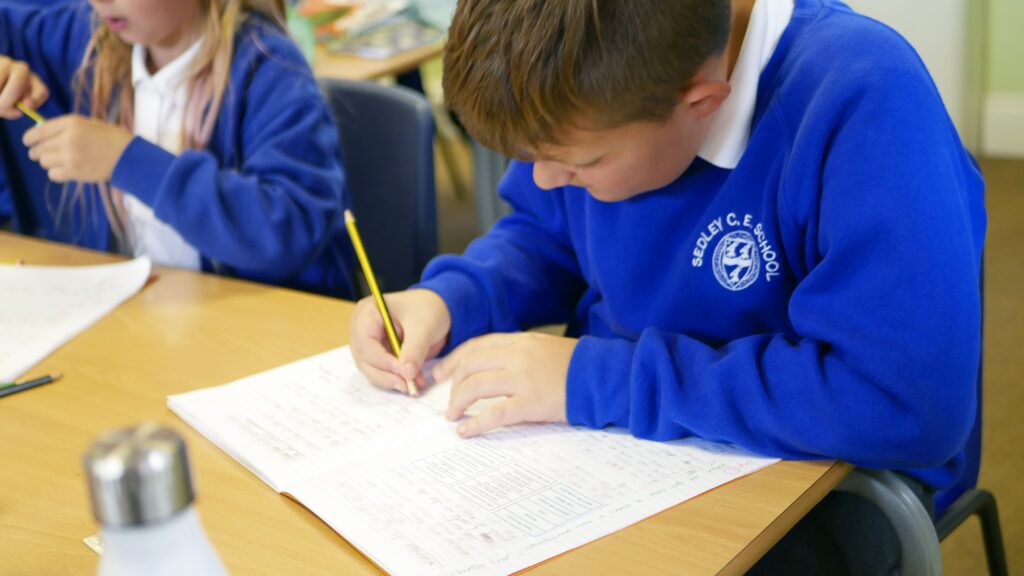
English Writing in Each Stage
In the Early Years Art is addressed within the Literacy Early Learning Goal.
Literacy Early Learning Goal: Writing – Children at the expected level of development will:
- Write recognisable letters, most of which are correctly formed;
- Spell words by identifying sounds in them and representing the sounds with a letter or letters;
- Write simple phrases and sentences that can be read by others.
Within Early Years there is a strong link between Literacy and Physical Development, as children are given opportunities to develop gross and fine motor skills in preparation for effective letter formation.
Click the link here to find out more about our Phonics curriculum
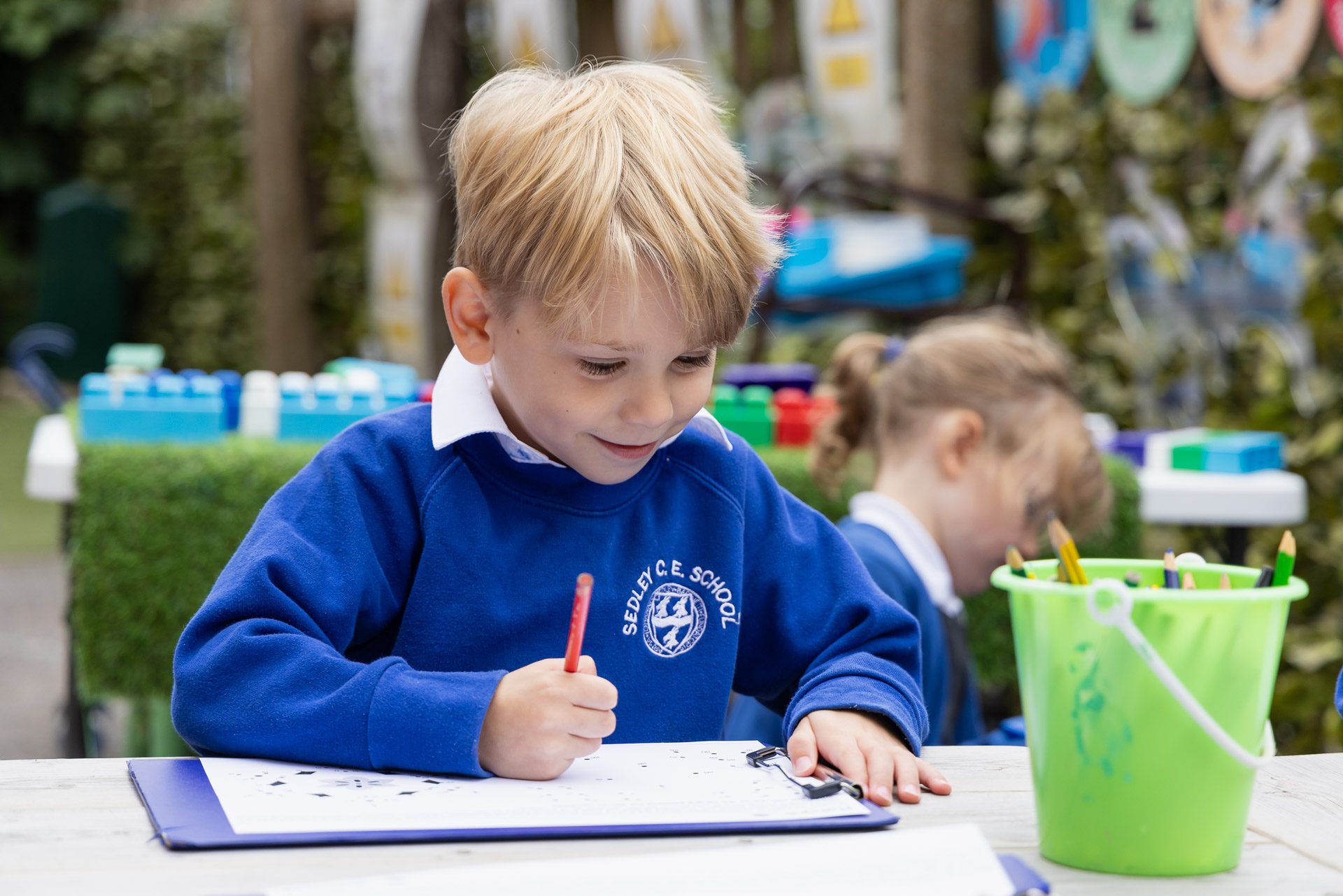
At KS1, pupils will be able to communicate their thoughts clearly about what they are going to write and be able to draw pictures and note ideas, keywords and new vocabulary in a simple planning format. Through the integration of drama, pupils will be able to explore ideas using simple role-play and take on roles to fully understand the characters’ narratives. Written work will compose of past and present tense with the inclusion of capital letters, full stops, question marks and exclamation marks.
Click the links below to find out more information for KS1:
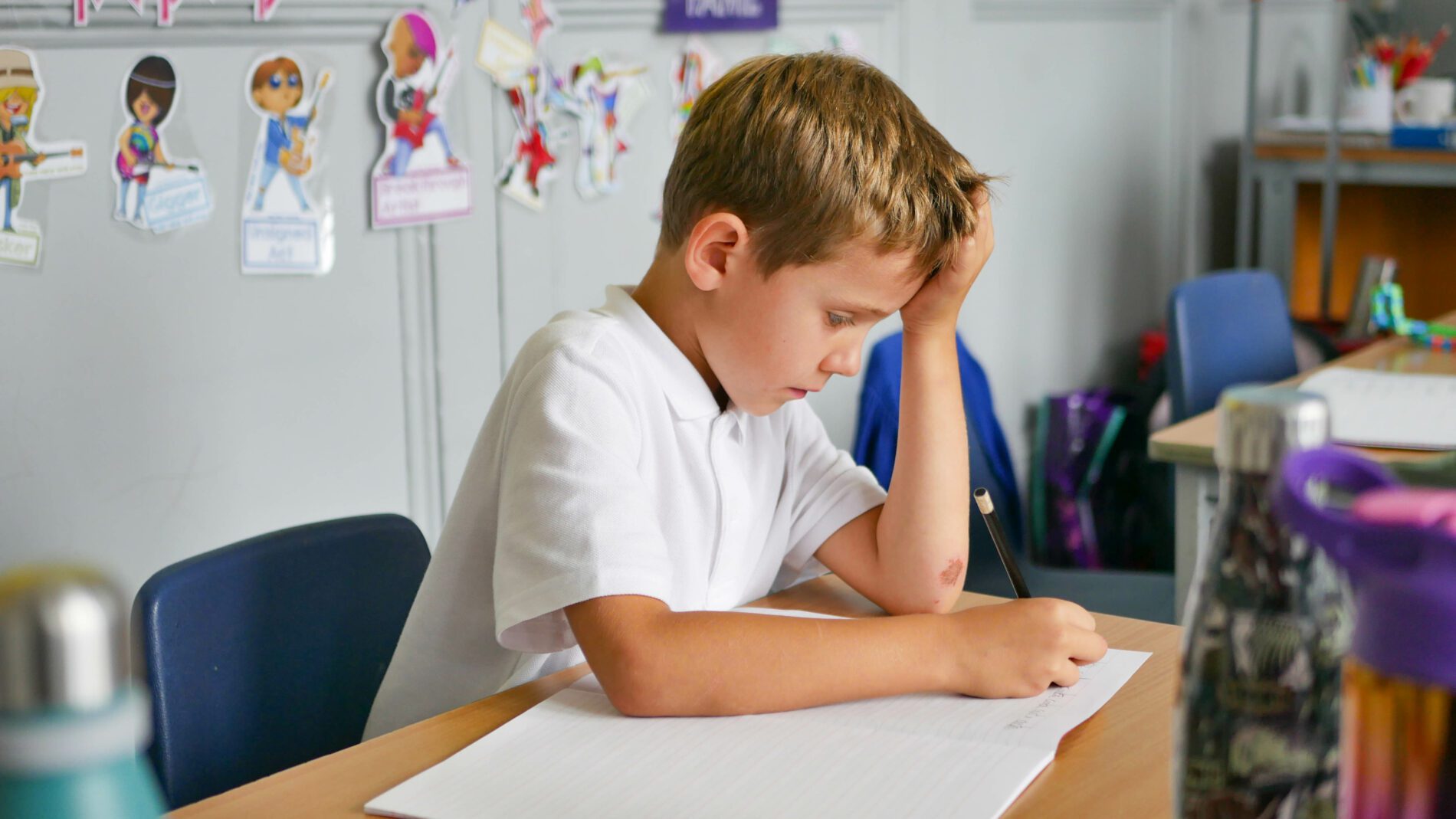
In KS2, pupils will be able to demonstrate the processes needed to plan writing. They will recognise, imitate and establish features of a selected form clearly through structural headings, paragraphs, introductions and conclusions, Through the integration of drama, pupils will be able to adapt a range of roles to develop creative and imaginative writing and respond appropriately to others when in a role.
Click the links below to find out more information for KS2:
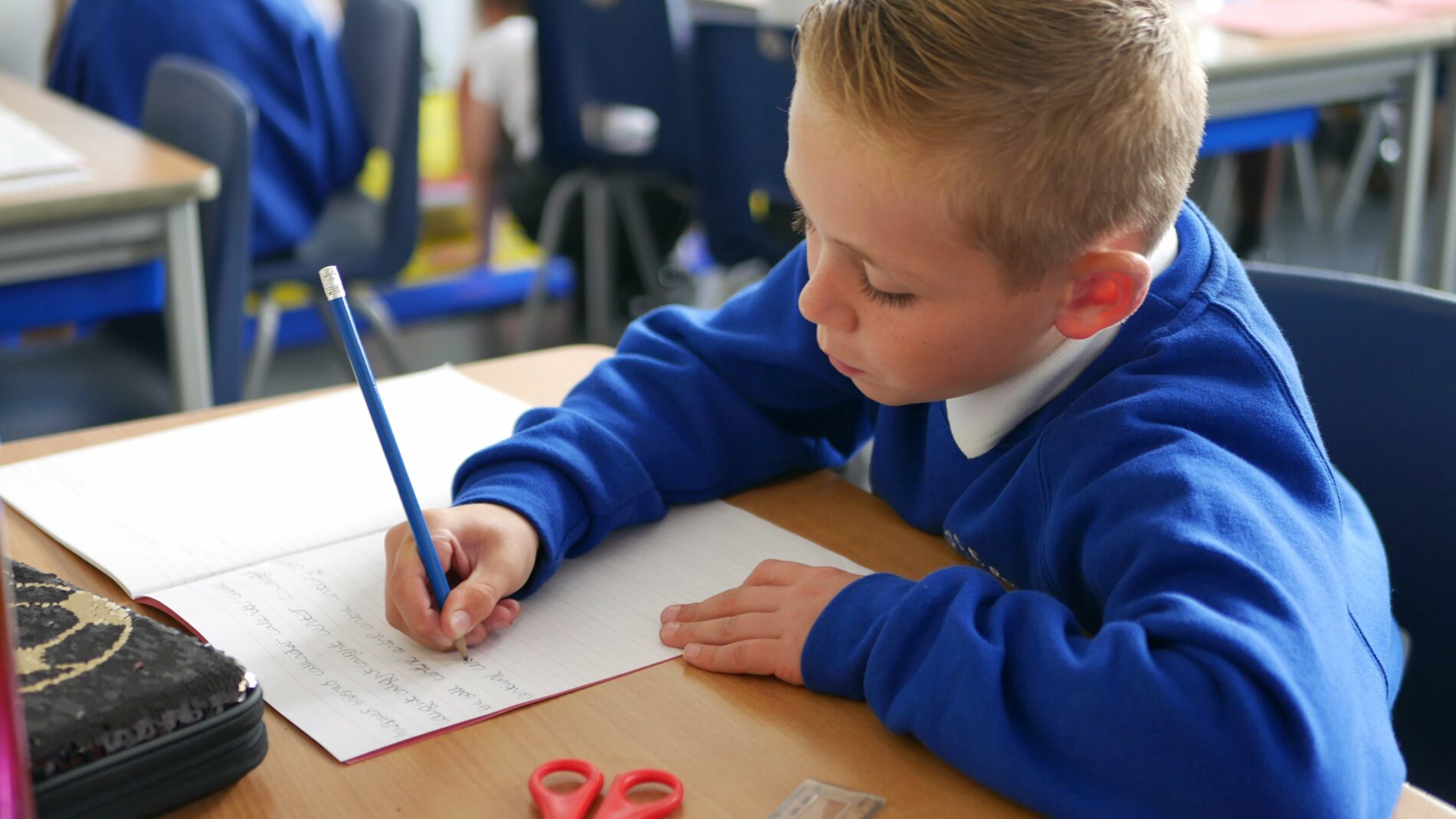
English Writing Overview and Knowledge CategoriesWriting – Overview and Knowledge Categories
SEND Information
Interventions, support and challenges are constantly revised and adapted to ensure all children are supported in achieving learning. The above areas are robustly and continuously monitored to ensure any gaps in learning are addressed.
Home Learning
To help pupils catch up, we also use these strategies for extra support: If pupils fall behind, we have a range of strategies we use to help them catch up with their peers. This includes extra activities or consolidation and practice for targeted groups. One-to-one support with a trained teaching assistant. In-class small group support. Extra adult-led verbal support to improve spoken language. Role-play to practise language and sentence construction. Children are reassessed regularly so that they can keep up with their age-related learning.
English Writing Extra Resources
Further English Writing Help
Fun English Writing Games

